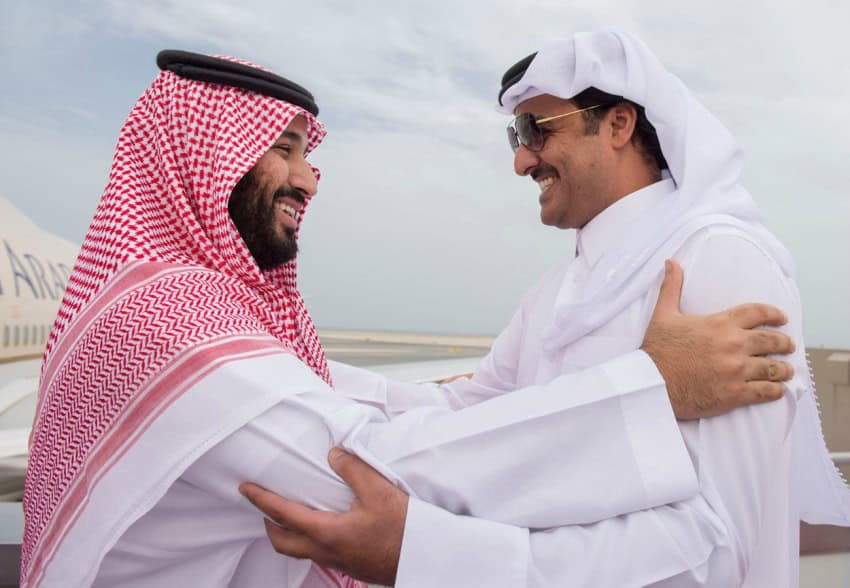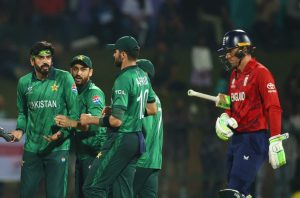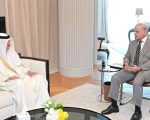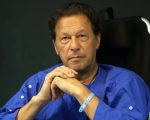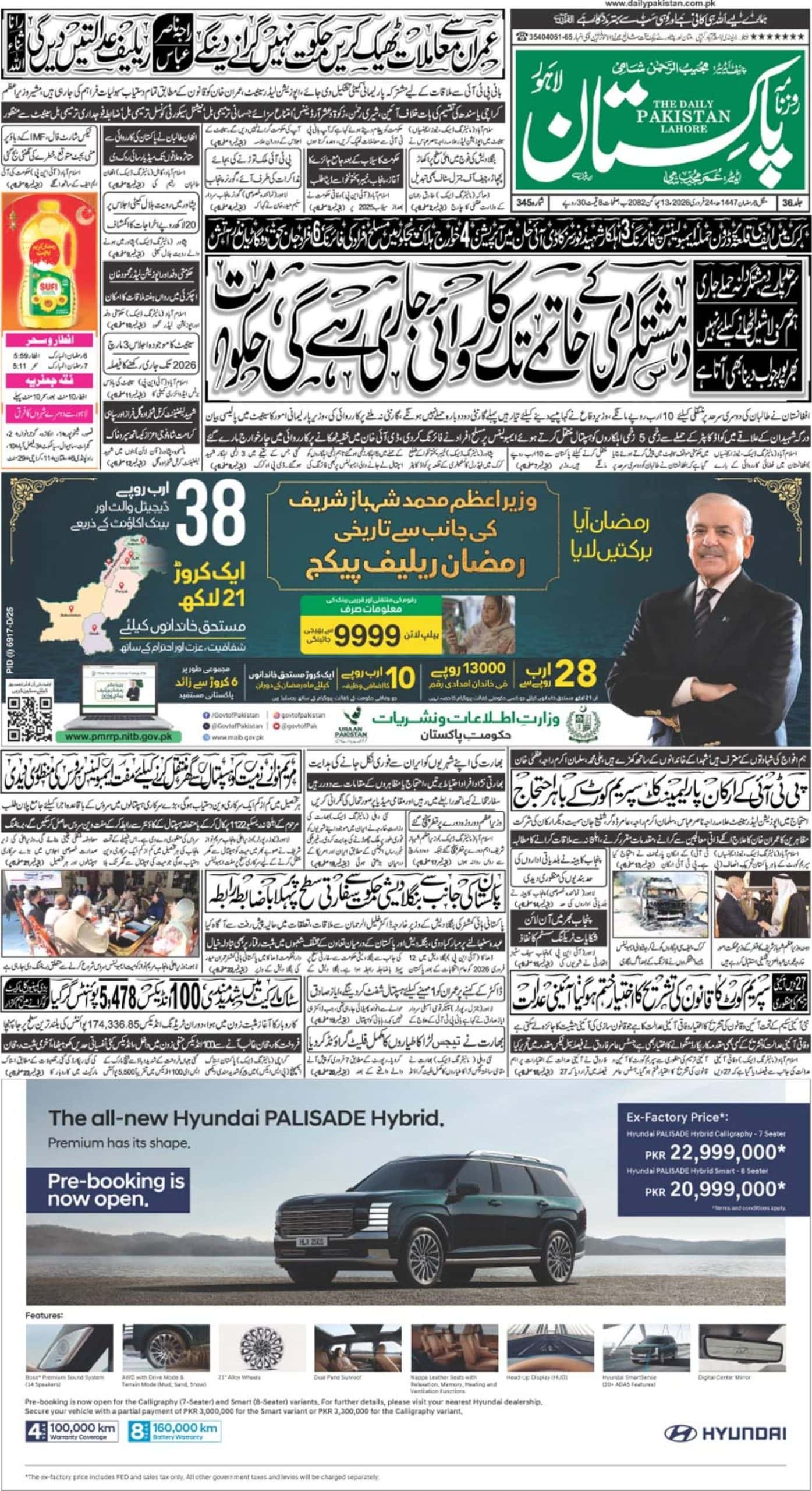Russia’s Foreign Minister Sergei Lavrov has been on a whirlwind tour of the Middle East, the Gulf region to be specific. His agenda is centred on reconciliation between the feuding Arab Gulf states and Qatar. Given the Kremlin’s hard-nosed Syria policy of saving dictator Bashar al-Assad, Putin’s top diplomat is not likely to create a significant impact. His recent visit does reflect on Moscow’s deepening interest in the Middle Eastern affairs, notwithstanding its disruptive and anarchic policy at large. So far, the Emir of Kuwait and the US Secretary of State have hectically engaged in active diplomacy to ease the situation. Lavrov is merely making a point about Russia’s relevance and concern for the region.With the Kuwaiti emir’s Washington visit, the simmering dispute within Gulf Cooperation Council (GCC) has borne fluctuations in temperature.
On September 7, Sheikh Sabah al-Ahmad Al Sabah told a press conference in Washington DC about the successful efforts to stop military action against Doha back in early June when Saudi Arabia, the United Arab Emirates, Bahrain and Egypt severed diplomatic and commercial ties with the gas rich Gulf state. Though widely respected across the Arab world, his remarks were sharply rebutted by the quartet. The very next day US President Donald Trump and Emir of Qatar Sheikh Tamim bin Hamad Al Thani spoke over the phone, marking the climax of the Kuwait-US mediation.
The breakthrough came on September 9 as the emir of Qatar called Saudi Arabia’s crown prince and the two leaders “stressed the need to resolve this crisis” through dialogue “to ensure the unity and stability” of the bloc. The Qatar News Agency (QNA) also reported that both have agreed to appoint two points of contact for talks to settle their differences.

The relief was short-lived as the Saudi side found fault with Qatari statement about the call, especially noting that it failed to mention that the telephonic contact was initiated from Doha.
The severance seems temporary, and the handiwork of hardliners. In fact, Saudi Arabia is one of the four nations in conflict with Qatar. Thus, Riyadh’s diplomatic outreach to the Qatari initiative and US-Kuwaiti mediation are beset with serious constraints. Bahrain might not have objected to Doha’s outreach and Riyadh’s reported readiness for talks but Cairo and Abu Dhabi certainly would have. The UAE is the most desperate and the most obvious contender for the larger regional role along side Saudi Arabia. Qatar’s individualistic or independent policies can not only create domestic political trouble for the regional hub of a Las Vegas-type lifestyle but also challenge its ambitions of becoming a soft as well as hard power in the Middle East and Africa.
For its own woes, unpopular and tyrannical Egyptian won’t let its Gulf allies take a softer stance on Qatar, whose Al-Jazeera channel is largely blamed for the ouster of Hosni Mubarak and whatever followed afterwards. The dictator at the helm refuses to admit that Cairo’s ills stem from the actions of its elite and not from Qatar or Turkey. On the other hand, the Gulf states don’t want to risk losing the Arab world’s most populous country as their ally, which they nearly did when President Dr Morsi attempted to pursue pro-Iran foreign policy.
Undeniably, Saudi Arabia is in a catch-22 situation. Iran’s encirclement through proxies in Yemen and Iraq and trigger-happy IRGC operatives in the Persian Gulf compel her to mend fences with Qatar. The tiny gas-rich nation has reportedly assured Riyadh through mediators of its readiness to comply with the kingdom’s national security concerns.
The Saudi crown prince’s consent to engage in telephonic diplomacy with the Qatari emir amply exhibits his desire for a more pragmatic approach than the hard-nosed pressed by the UAE since the very outset. Given the nature of quartet alliance, hope for a quick breakthrough is less likely. What is more probable is the meditators’ success in ensuring veil of secrecy whenever any future direct contacts take place. The Saudi state media agency started it first by announcing that the crown prince has received a call from the emir. The Qatari news service then did its part of indulging into ‘the details’.
Nonetheless, the brief Saudi-Qatari engagement tantamounts to silver-lining beneath the dark clouds. The benefactors of tension would rely on anything from palace intrigues to public information. The most recent effort to have the Islamic State of Iraq and the Levant (ISIL) declare support for Qatar has failed to impress the world. Some might have fallen for the stunt but the global media and experts on modus operandi of Daesh have not. The New York Times has been the first one to debunk the disinformation. There will be more similar fake attempts.
On the other hand, suspension of air, sea, and land transport with Qatar since June has had an implication, most of all on the economic front. Besides Qatar Airways facing trouble maintaining steady passenger traffic on certain routes, maintenance of its petroleum industry equipment too has been affected for much of the spares’ supply chain is based in the UAE. The shortcut, however, has been to the benefit of neutral Oman. The goods are shipped to the Sultanate from the Emirates before being ferried further to Qatar, eventually costing more in terms of time and logistics. The restraint Doha has exercised since June sprouts from its necessity to remain integrated within the GCC. It’s worth mentioning though that Qatar has chosen to resume diplomatic relations with Iran, which has not only offered its airline airspace but also provides certain daily use commodities.
America and Qatar have their own share of differences. Washington has long been upset at Doha’s cosiness with Hamas which it lists amongst terrorist organizations. Besides, reporting by Al-Jazeera Network has largely been received by the US administration with a pinch of salt. Resumption of diplomatic channels with Iran could be yet another irritant between the two countries. Already, the UAE has been offering the US to shift its sprawling military facility from Qatar’s al-Udeid to its own soil. The White House won’t give up that leverage on Doha to the detriment of its interests.
The interest of Saudi Arabia and America is served better by impressing upon the other Arab quartet members the need for a more flexible approach towards Qatar instead of the humiliating one which has failed to deliver so far. Their nine-month-long diplomatic isolation of Doha in 2014 could only deliver so much. Riyadh is also drawing lessons from the withdrawal of ambassador from 2002 to 2008. Thus, the contacts between Doha and Riyadh may continue further but under the veil of secrecy and with the engagement of other stakeholders. Kuwait has gained more weight since the standoff began. The US has, meanwhile, learnt to not pick sides in the Gulf. The simmer phase of the crisis may last a bit longer but not too long.

